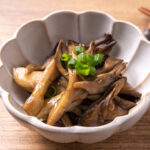This functional food may be your best defense against stress
 (NaturalHealth365) Judged strictly by appearances, the maitake looks like the happy-go-lucky “party girl” of the mushroom family. With its frilly, feathery caps, it has an unexpectedly festive appearance. But appearances can be deceiving. This fancy-looking fungus is both a powerful medicinal mushroom and an important staple of Asian cuisine.
(NaturalHealth365) Judged strictly by appearances, the maitake looks like the happy-go-lucky “party girl” of the mushroom family. With its frilly, feathery caps, it has an unexpectedly festive appearance. But appearances can be deceiving. This fancy-looking fungus is both a powerful medicinal mushroom and an important staple of Asian cuisine.
Scientists are beginning to “get on board” with the merits of maitake mushrooms. In a review published in Heliyon, researchers explored the multiple health-promoting properties of maitake, which is botanically known as Grifola frondosa. Let’s look at the compelling findings – some of which might surprise you.
Beta-glucans in maitake mushrooms boost immune function and combat diseases on multiple fronts
In the new review, the scientists pointed out that beta-glucans, a type of complex carbohydrate in maitake, can modulate and enhance the immune system by activating its disease-fighting T-cells and macrophages. Beta-glucans also promote the immune system’s health by enhancing the diversity and balance of the gut microbiome. But that’s not all. These medicinal mushrooms feature a slew of prized “a” qualities – anti-inflammatory, antioxidant, anticancer, and antidiabetic.
The review authors cited another study published in the International Journal of Molecular Science highlighting the ability of ergothioneine in mushrooms to fight inflammation and reduce oxidative stress. The authors also referenced studies suggesting that an extract from maitake mushrooms – known as D-fraction – can reduce the size of tumors.
Cell studies have also shown that maitake compounds can cause apoptosis, or “cell suicide,” in human liver cancer cells. Finally, polysaccharides found in maitake mushrooms can decrease blood sugar and increase insulin sensitivity, thereby acting against type 2 diabetes. Clearly, maitake mushrooms have immense potential for enhancing overall health.
Maitake mushrooms are on the “A-list” for adaptogenic benefits
This delicious mushrooms has one more important “a” benefit – they are adaptogenic, meaning that they help the body and mind adapt to stress. Some of the ways in which they accomplish this include regulating stress hormones, fighting oxidative damage, promoting better resistance against pathogens, and fine-tuning digestion. These versatile mushrooms contain an entire “arsenal” of beneficial compounds, including flavonoids and phenols, along with glutathione, the body’s premier detoxifying agent.
Maitake mushrooms are also one of the richest sources on the planet for ergothioneine, an antioxidant that has been impressing researchers with its health-promoting potential. Rich as they are in therapeutic compounds, maitake mushrooms appear “tailor-made” for helping the body cope with injury and illness.
Hydrate, soothe and brighten skin
Various bioactive compounds, vitamins and minerals in maitake mushrooms are believed to help hydrate skin, promote production of collagen, soothe inflammation and reduce signs of aging. For example, vitamin B3, found in maitake, is thought to improve skin barrier function and help to prevent water loss. In a 2022 research paper published in Molecules, maitake performed better than lion’s mane and reishi mushrooms in scavenging harmful free radicals.
The researchers also reported that maitake extracts had “positive effects” on the pH and hydration of the skin. You can find maitake extracts in skin lotions, serums, and masks. To reduce the risk of irritation, holistic healthcare practitioners advise doing a skin sensitivity test before use.
It’s easy to incorporate these delicious ‘shrooms into your diet
With a mild but savory flavor and a pleasing consistency, maitake mushrooms are equally at home in a stir fry or risotto. Saute them in olive oil or add them to soups, stews, and casseroles. You can also roast them with a little grass-fed butter and your favorite herb or spice.
Jam-packed with nutrients and delivering a minimal 22 calories per cup, the maitake is a wise dietary choice. These tasty mushrooms are rich in B and C vitamins, potassium, zinc, beneficial monounsaturated fatty acids, and ergosterol, a precursor to vitamin D. Maitake mushrooms can be found at local supermarkets and Asian specialty food shops. Store the fresh, whole mushrooms in a paper bag in the refrigerator for up to five days or freeze them for later use.
Maitake mushrooms are also available as a supplement. Look for a certified, organic product that has undergone third-party testing to ensure it contains no pesticides or heavy metals. For immune system support, holistic healthcare providers typically advise 12 to 25 mg per day of the D fraction or 500 to 2,500 mg of whole mushroom powder. Before supplementing with maitake mushrooms, consult your holistic doctor.
Incidentally, the maitake mushroom has two charming nicknames. The first, “hen of the woods,” comes from its feathery appearance. The second, “the dancing mushroom” (hui-shu-hua in Japanese), is due to the fact that people were said to dance with joy once they found it.
Maybe you, as well, will find the multiple benefits of this adaptogenic, tasty mushroom to be dance-worthy!
Sources for this article include:
Sciencedirect.com
NIH.gov
Healthline.com
Wholeisticliving.com
NIH.gov
Thespruceeats.com
Nutritionistmeetschef.com
Greenskybio.com



